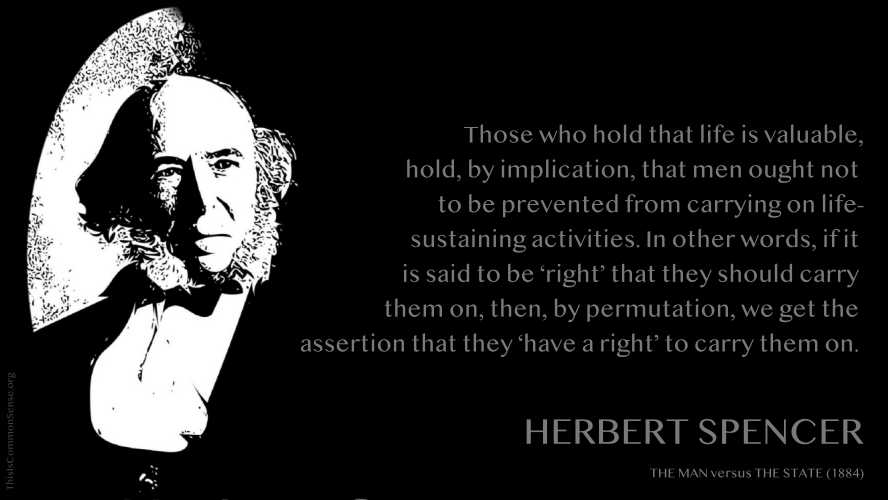Herbert Spencer, “The Great Political Superstition,” The Man versus The State (1884).
If we adopt pessimism as a creed, and with it accept the implication that life in general being an evil should be put an end to, then there is no ethical warrant for these actions by which life is maintained: the whole question drops. But if we adopt either the optimist view or the meliorist view — if we say that life on the whole yields more pleasure than pain; or that it is on the way to become such that it will yield more pleasure than pain; then these actions by which life is maintained are justified, and there results a warrant for the freedom to perform them. Those who hold that life is valuable, hold, by implication, that men ought not to be prevented from carrying on life-sustaining activities. In other words, if it is said to be ‘right’ that they should carry them on, then, by permutation, we get the assertion that they ‘have a right’ to carry them on. Clearly the conception of ‘natural rights’ originates in recognition of the truth that if life is justifiable, there must be a justification for the performance of acts essential to its preservation; and, therefore, a justification for those liberties and claims which make such acts possible.
Categories
Herbert Spencer
